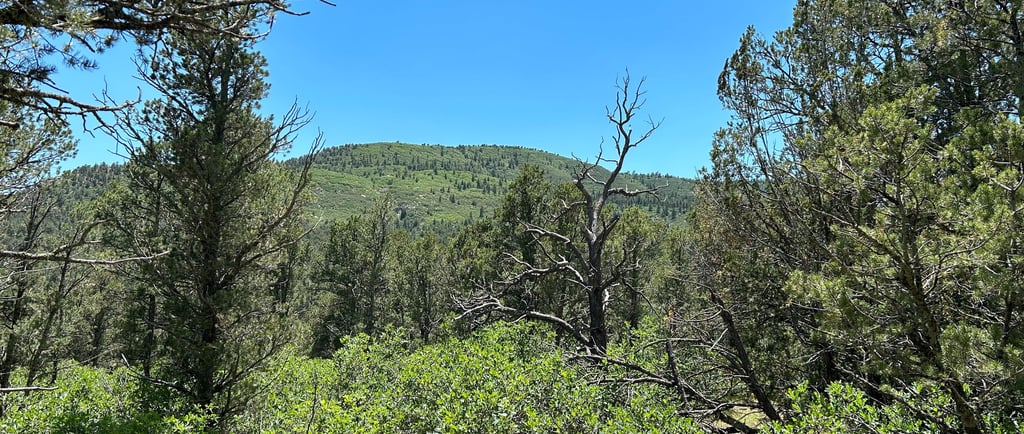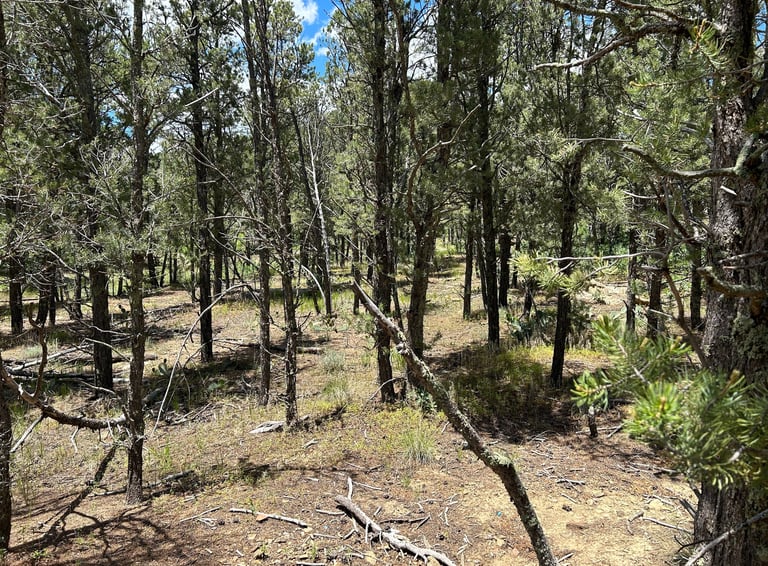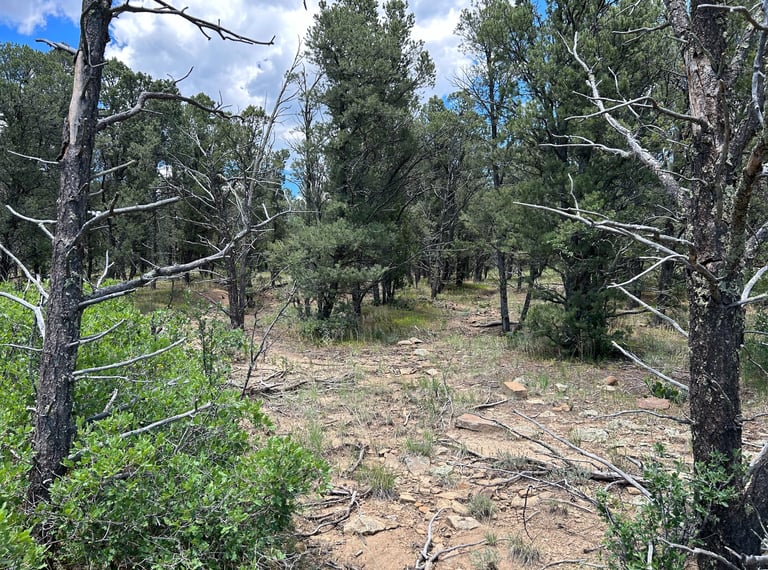Panic Management
Prioritization: Wilderness Application
Lew
8/3/20237 min read


No one can predict when an emergency situation will occur. It is in a humans nature to experience what some people call a "Fight or Flight" reaction. Some organizations, such as the Military, Police, and Search & Rescue teams, train for high stress and immediate response scenarios but, for many of us, finding ourselves in an unfamiliar environment or situation, triggers panic.
Our instincts should kick in and, we'll need to remove ourselves from any immediate REAL danger (not falsely perceived). Avoiding a forest fire that is in our path of travel or, removing ourselves from a freezing river that we may have fallen into, etc., are all things that should come naturally. There will probably NOT be a need to run for your life in an effort to evade a Sasquatch. There will probably NOT be a need to set up a defensive perimeter to ward off Gremlins nor Boogymen. It WILL be necessary to identify immediate REAL danger, versus falsely perceived dangers. Once any immediate REAL danger has been avoided, the next best action, is to STOP, sit down, and think things through. Running off blindly through remote areas is a recipe for disaster, increasing the odds of injury, wasting energy, and almost certainly getting ourselves into even more trouble (or more lost) than what we may have originally been in. Professionals advise that one of the best ways to manage panic is by establishing confidence. The best way to initiate confidence is to calm down and, stop thinking about how detrimental your situation is. Stop focusing on the things that you DON'T have. Accept that you are in an emergency and, begin to plan on how to deal with it. Remind yourself of all of the things that you DO have. Hopefully, you will have a few items on, or near you, that will aid in your success like, having a Rain Poncho, having a knife, and/or having a canteen. Hopefully, you will have certain skills to remind yourself of as well like, knowing how to find water, knowing how to start a fire, and/or knowing how to navigate in the Wilderness.
Now that immediate REAL danger has been avoided and, we've began to collect our composure, if we are lost, Search & Rescue teams strongly suggest that we physically stay where we are currently at. It is not uncommon for people in an emergency situations, to feel guilty, embarrassed, or ashamed. "I am the best outdoorsman that I know. How did I get myself lost? I can't be more than a couple of miles from camp." or "My poor loved one back home is going to be worried about me. How did I get myself into this situation and create them so much stress?". These are legitimate concerns. You probably ARE the best, your loved one probably IS stressed and, neither of you deserve to be going through this experience, however, if you do your part, and stay where you are, they will do their part, and send help.
Statistics show us that most people that are lost, injured, or otherwise stranded, are successfully rescued within 72 hours. NOW is the time to prioritize!


The photo shows how claustrophobic some Wilderness environments can appear. This location would obviously be manageable under normal circumstances but, if you were panicked, and you weren't thinking clearly, this location if full of opportunities for injury and, potentials for getting lost. However, once calmed, a confident person could eventually begin to pick out available resources that would contribute towards their success!!
Prioritizing Concerns using the... "Principles of 3"
On average:
The human brain cannot do without oxygen for more than 3 minutes, therefor, if a need for resuscitation exists, this (1st Aid) is the top (first) priority.
The human body must be protected from extreme weather conditions within 3 hours, or else, we may succumb to heat stroke or hypothermia. Either removing ourselves from or, protecting ourselves from, the elements is our next (second) priority.
The human organs can only survive without water for 3 days, until dehydration will claim its victim, making hydration (water) our next (third) priority.
Humans can endure 3 weeks without food. An absence of calories will undoubtedly lower energy and moral levels but, the NEED for food will fall into the last (forth) priority.
Although no two emergency situations are alike, and the size of the party you are with can vary (or you could be alone), there is somewhat of a traditional "check list", based on the "Principles of 3", to help aid in prioritizing your needs, and assist you in your decision making.
1. Does anyone need medical attention/1st Aid? Trauma/1st Aid (and 1st Aid Kits) will be discussed in future Subject Matter, however, some examples of questions that you are asking yourself are; "Does anyone need resuscitation?", "Does anyone have a broken bone that needs splinting?", "Does anyone have a laceration that requires a Pressure Bandage?", "Does anyone have an amputated limb that requires a tourniquet?". We are NOT (yet) considering minor abrasions that may eventually require a band-aid (and although not a priority now, any abrasion can become infected and, should be treated as soon as time allows).
2. If we are not lost, can we navigate our way out? If we are lost, can we signal our way out? If neither is an option, is there time, material, (or a need), for building a shelter now or, is this first night going to simply be spent hunkered down under a tree? Shelters will be discussed in future Subject Matter, however, some locations and/or time of year might not constitute a shelter right now but, weather DOES CHANGE and sometimes, it changes rapidly and without warning. Depending on how long you elect to stay HERE determines how much energy you should decide to dedicate to its construction and, how elaborate the design will be.
3. Fire...When being categorized, fire may be considered the "Bridge between Shelter and Water". Is there time, material, (or a need), for building a fire? Methods of making fire will be discussed in future Subject Matter. Although temperatures may be now, and even expected to remain, warm enough to endure, you may eventually require a fire to disinfect water, signal for help, dry clothing, or eventually keep you warm when the weather DOES CHANGE.
4. Is there enough time, or a need, for locating and gathering water? Perhaps its raining, even flooding, and therefore a need for locating water is not an obstacle yet. Keep a good eye on your water supplies and, gather it when opportunities arise as, dehydration is a SERIOUS concern! We will discuss how to increase your odds of finding water, as well as methods of treating it, in an effort to make it safe for human consumption, in future Subject Matter.
5. Although food will not be a priority in your scenario for quite some time, we will discuss Caloric Procurement in future Subject Matter.
6. As discussed previously, professionals advise us to STAY PUT! Only if there is a medical emergency or, if we know EXACTLY where we are and, where we are going, does Self Rescue via Navigation become an immediate option to consider. However, proper Signaling makes absolute sense as soon as possible. We will discuss Navigation, as well as Signaling, in future Subject Matter.


This photo was taken only approximately 100 yards from where the photo previously shown was taken. Here is an example of where we are afforded multiple assets and opportunities. There is plenty of natural materials available for building a shelter. There are even some Juniper trees to collect inner bark from for a Tinder Bundle, as well as some Pine trees that we could harvest "Fat Wood" from to help build our initial flame into a sustainable fire. It may be wise to construct our shelter under the canopy of a mature tree but, perhaps a Fire Lay would be better served if we were to place it in this opening where, we could use it as a "Passive Signal" for potential rescuers to locate us. There is even an abundance of green vegetation that we could place on top of our Fire Lay, to create a Smoke Plume as an "Active Signal"! (Please note the clouds in the background. We were pounded by a thunderstorm shortly after this photo was taken! It just goes to show you how quickly the weather can change.)

Click on the video to learn more about "The Principles of 3" and how understanding this simple concept can assist you in establishing priorities based on the TIME SENSITIVITIES of your bodies NEEDS (thus, helping to manage panic)!!
The "3 Zones" of Assets
Once you have decided what your priorities are, now is the time to locate, and collect, any items that you have around you that can assist in your survival. In an effort to help us focus, some people refer to the "3 Zones" for locating these items.
Zone 1: What do you have on your person? A few examples would be; Do you have a pocket knife (an invaluable tool)? Do you have a Rain Poncho (could be used for shelter, or for collecting water in a rain storm)? Do you have a belt (could be used for a tourniquet)? Do you have shoe/boot laces (could be used for cordage or, for a Bow String while attempting a Friction Fire)?
Zone 2: What do you have in your immediate surroundings? A few examples would be; Do you have any bottles of water in the trunk of your car? Do you have a Flash Light in the Tackle Box in the boat? Do you have a Granola Bar in your lunch box on the ATV?
Zone 3: What do you have in a 100-200 yard radius? A few examples would be; Do you have a Spruce Tree to shelter under tonight? Do you have a stream to collect and disinfect water from? Is there a Hiking Trail that you could set up a signal by?
Once you have located, and collected, any items that you have around you that can assist in your survival, now is the time to focus on completing tasks, building confidence, and therefore, managing panic! Remember, survival is predominantly a mental exercise. It's ironic to know that extremely young people, around the age of 10 or even younger, have historically recorded amazing feats of survival. It is as if they don't know that failure is an option. They don't seem to fully recognize the dangers and, therefore, they don't let their own mind defeat them. They just keep moving forward and...survive. Don't let YOUR mind defeat you. You have assets, you just need to find them. You have skills, you just need to remember them. Most will only have to endure this emergency situation for 72 hours. You may have to endure it for longer but, you can do it. Many before you have proven it!
In future Subject Matter we will reference Historical Accounts of people who have survived emergency situations that seemed un-survivable. Please Join us!!
